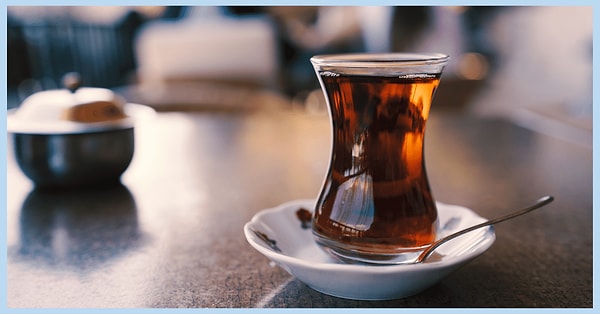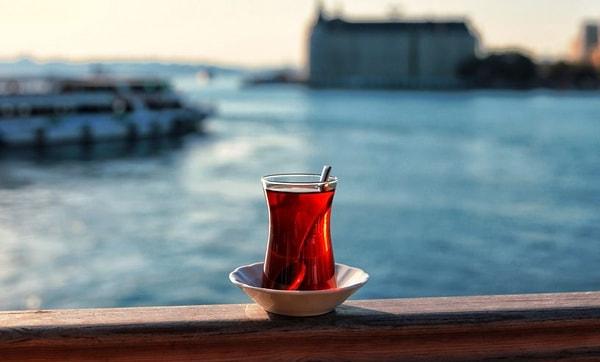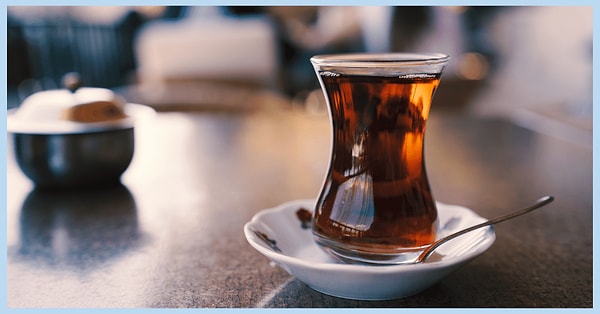The Significance of Turkish Tea Culture: History, Preparation, and Enjoyment
Turkish tea culture is a rich and vibrant tradition that has woven itself into the fabric of Turkish society. It is not merely a beverage; it is an integral part of social gatherings, conversations, and hospitality in Turkey. The love affair between the Turkish people and tea dates back centuries, with its roots embedded in the country's history, geography, and way of life. In this article, we will delve into the significance of Turkish tea culture, exploring its captivating history, the art of tea preparation, and the sheer enjoyment it brings to individuals and communities.
I. History of Turkish Tea Culture

To understand the significance of Turkish tea culture, one must delve into its historical foundations. Tea was introduced to the Ottoman Empire in the early 16th century, primarily through trade with China. However, it wasn't until the 20th century that tea gained widespread popularity in Turkey. In the aftermath of World War I, when the Ottoman Empire collapsed, Turkish leaders sought to reduce the country's dependence on imported goods. As a result, they implemented policies to promote tea cultivation within the country, leading to a surge in domestic tea production. Today, Turkey ranks among the world's top tea-consuming nations.
II. The Art of Turkish Tea Preparation

Preparing Turkish tea is an art form that requires precision and attention to detail. The centerpiece of this ritual is the traditional Turkish tea set, consisting of a double-teapot called a 'çaydanlık,' small tulip-shaped glasses called 'fincan,' and saucers. The çaydanlık consists of two stacked kettles, with the larger one at the bottom holding boiling water and the smaller one on top containing loose tea leaves. The tea is brewed by simmering the water in the bottom kettle while allowing the steam to rise and infuse the tea leaves in the top kettle.
The brewing process requires patience, as the tea leaves need time to release their full flavor and aroma. Typically, Turkish tea is brewed to be strong, dark, and fragrant. The brewed tea is then poured into the fincan, filling only a third of the glass to allow for dilution with hot water to the desired strength. It is common for Turks to drink multiple glasses of tea throughout the day, often accompanied by a small sugar cube or a slice of lemon.
III. Turkish Tea Culture and Social Interactions

Turkish tea culture goes beyond the mere act of drinking tea; it serves as a vehicle for social interactions and the forging of strong bonds. Tea houses, known as 'çay bahçesi,' are integral to Turkish society, providing a relaxed setting for friends, family, and colleagues to gather and engage in lively conversations. These tea houses are ubiquitous in cities and towns throughout the country, offering a welcoming space for individuals from all walks of life to come together.
Tea also plays a significant role in Turkish hospitality. When visiting a Turkish home, it is customary for the host to greet guests with a cup of tea, demonstrating warmth and generosity. This act symbolizes the importance of connection and creates a welcoming atmosphere for guests. In workplaces, tea breaks are a common occurrence, fostering camaraderie among colleagues and providing a brief respite from daily tasks.
IV. The Pleasure of Turkish Tea

Partaking in Turkish tea is a multisensory experience that brings immense pleasure to those who indulge in its flavors and aromas. The rich, dark amber color of the tea, coupled with its earthy aroma, entices the senses. Sipping on a hot cup of Turkish tea can be both comforting and invigorating, making it an ideal companion during leisurely moments or intense discussions.
Beyond its taste, Turkish tea has numerous health benefits. It is rich in antioxidants, which contribute to overall well-being. It is known to improve digestion, boost the immune system, and provide a natural energy boost without the jitters commonly associated with coffee. Turkish tea is also low in calories, making it a guilt-free indulgence for those conscious of their diet.
Furthermore, Turkish tea culture promotes a sense of mindfulness and relaxation. Taking a moment to sit down, enjoy a cup of tea, and engage in conversation allows individuals to unwind and connect with others on a deeper level. It fosters a sense of community and serves as a reminder to prioritize human connection in an increasingly fast-paced world.
V. Turkish Tea and Cultural Identity

Turkish tea is more than just a beverage; it is an embodiment of Turkish culture and identity. It is deeply ingrained in the daily lives of Turkish people, transcending social classes and generations. The tea-drinking tradition is passed down through families and plays a pivotal role in socializing, celebrations, and even mourning. It acts as a symbol of unity, fostering a shared sense of belonging and pride among Turks both at home and abroad.
Turkish tea also holds significance in the broader context of Turkish cuisine. It is often accompanied by an array of delectable treats such as 'simit' (a circular sesame-covered bread), 'baklava' (a sweet pastry), or 'çaykur topları' (tea cookies). These culinary pairings enhance the overall tea-drinking experience, elevating it to a moment of indulgence and pleasure.
Turkish tea culture is a testament to the country's rich heritage, hospitality, and sense of community.

Its history, meticulous preparation, and enjoyment through social interactions make it an integral part of Turkish identity. The art of brewing and savoring Turkish tea exemplifies the country's commitment to tradition, connection, and the celebration of everyday moments. So, whether you find yourself in a bustling tea house, a Turkish home, or even on the streets of Istanbul, be sure to immerse yourself in the beauty and significance of Turkish tea culture. Sip on a cup of strong, aromatic tea, and let it transport you into a world where time slows down, conversations flow, and bonds are strengthened over shared moments of warmth and hospitality.
Do you like tea with or without sugar? Tell us in the comments!
Keşfet ile ziyaret ettiğin tüm kategorileri tek akışta gör!


Send Comment